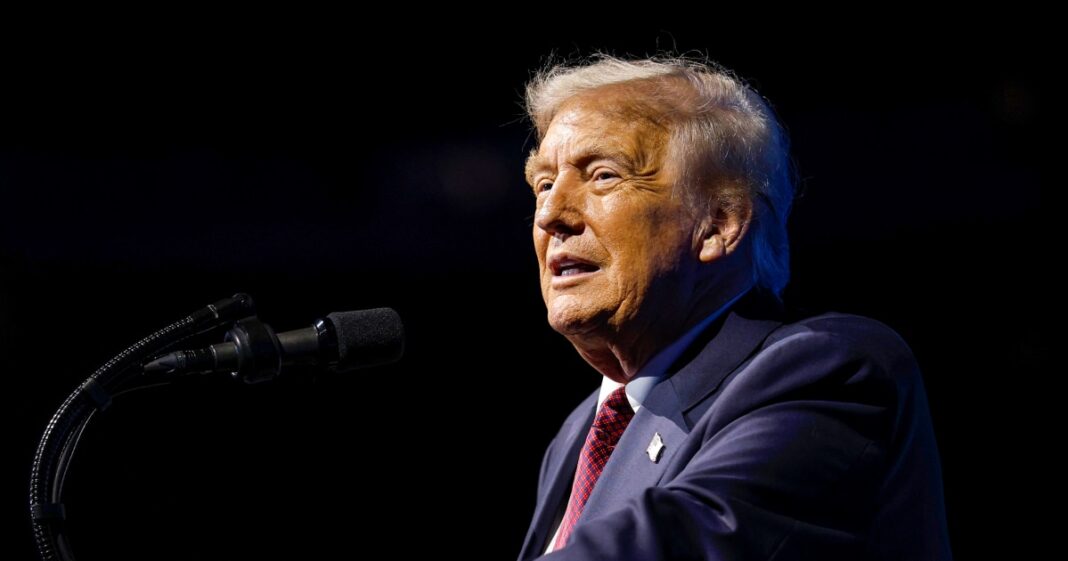Celebrating Victory: Trump’s Call for a U.S. Victory Day
In recent remarks, former President Donald Trump emphasized a sentiment often overlooked in American celebrations: the commemoration of military victories. Noting that several countries observe annual celebrations for their triumphs in World War I and World War II, Trump expressed a desire for the United States to join in on the recognition of its own victories.
The Case for Victory Day
Trump articulated his thoughts during a Veterans Day ceremony, pointing out that while nations such as France, the United Kingdom, and Russia celebrate their respective Victory Days with fanfare and pride, the United States has not established a similar tradition. “They were all celebrating; we’re the ones that won the wars,” he remarked, underlining his belief that American achievements in global conflicts warrant acknowledgment and celebration.
By calling out these countries, he highlighted the contrast in how these pivotal moments in history are remembered. “When I see other countries celebrating Victory Day… I said, ‘We got to have a Victory Day,’” he stated, encapsulating his perspective on the importance of remembering past victories with appropriate honors.
Acknowledging Allies and Rivals
Trump’s commentary didn’t stop with just France. He broadened his focus to include the United Kingdom and Russia, two prominent allies during World War II. His reference to watching their celebrations suggests a fascination with how nations bond over shared histories of conflict and resolution. The idea that the U.S. would adopt such a celebration speaks to a deeper yearning for unity and collective pride in military history.
To many, these battles are not merely historical footnotes; they are chapters that shaped the nation’s identity and its place in the world. Such a day would allow Americans to reflect on sacrifices made and the resilience shown during times of war.
A Vision for U.S. Commemorations
Trump’s assertion extends beyond mere recognition of the past; it hints at a more profound cultural shift regarding patriotism and national pride. Many Americans might appreciate a day dedicated to reflecting on military achievements. It could serve as an opportunity for national solidarity, prompting discussions around peace, the ramifications of wars, and the importance of honoring veterans.
The potential establishment of a U.S. Victory Day could inspire diverse ceremonies across the nation, drawing families and communities together. From parades to moments of silence, the possibilities are endless, and each could evoke a sense of shared history and collective remembrance.
Reflecting on the Impact of War
While the idea of celebrating military victories can stir nationalist feelings, it also raises questions about how we remember the complexities of war. Celebrating victories may also encourage discussions regarding the consequences of conflict, including the loss of life and the psychological toll on veterans and their families.
By framing a potential Victory Day as not only a tribute to winning wars but also as a moment to appreciate peace and the sacrifices that ensure it, the conversation can expand beyond mere celebration to inclusive reflection.
Possible Reception of a Victory Day
How would the general public perceive the establishment of a Victory Day? Supporters might embrace the idea, viewing it as a rightful acknowledgment of the U.S. military’s achievements. Critics, however, may argue that such celebrations could gloss over the atrocities of war and simplify complex historical narratives. Balancing celebration and reflection would be key to its acceptance.
In the end, Trump’s call to establish a Victory Day invites a broader dialogue about national identity, the legacy of military conflicts, and the role of celebration in American culture. As communities contemplate the implications of such a day, the conversations could enrich the societal understanding of history, pride, and collective memory.



